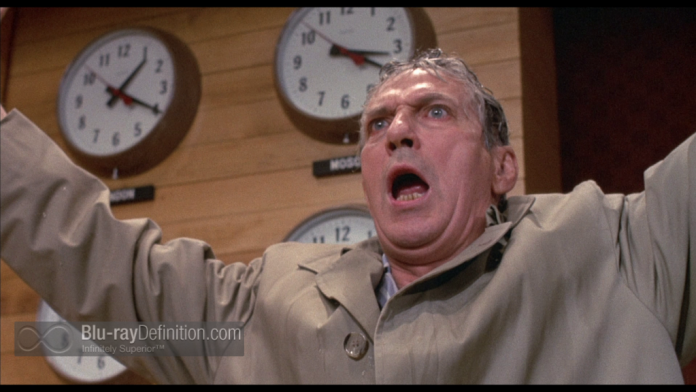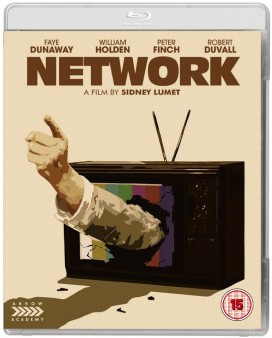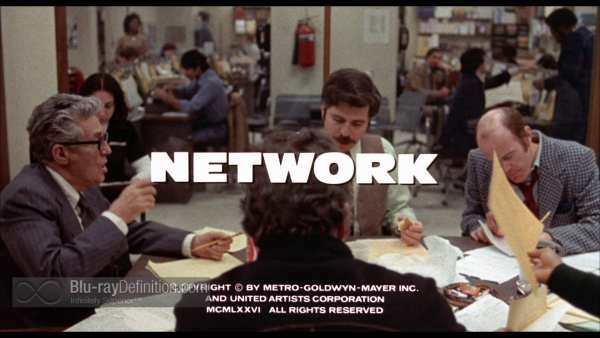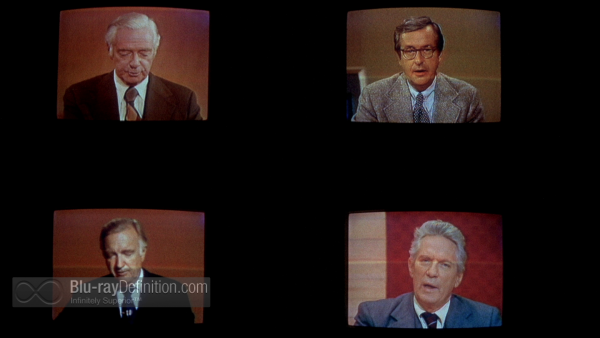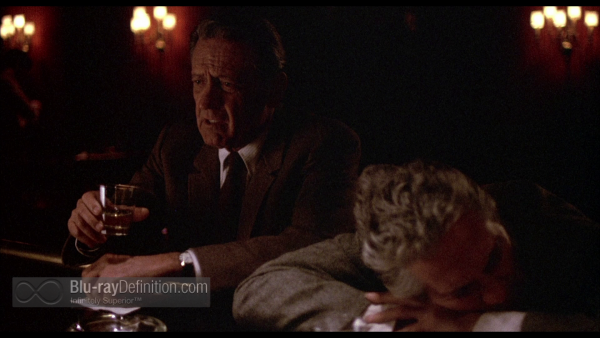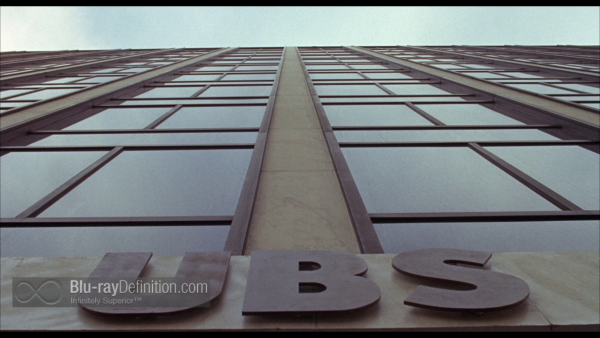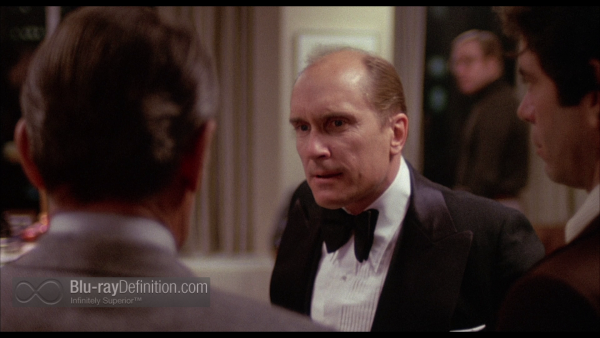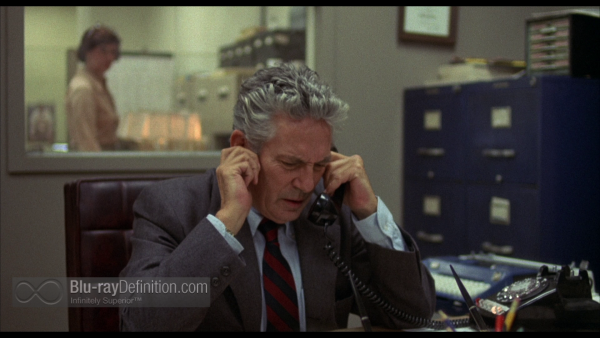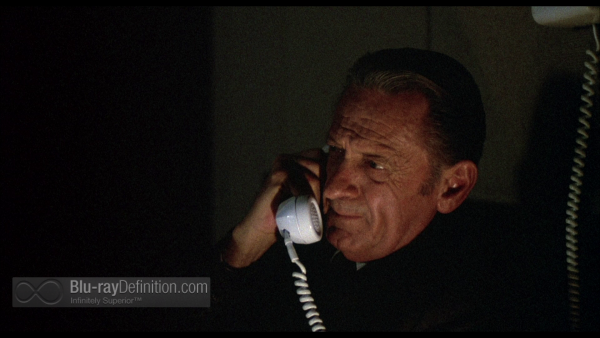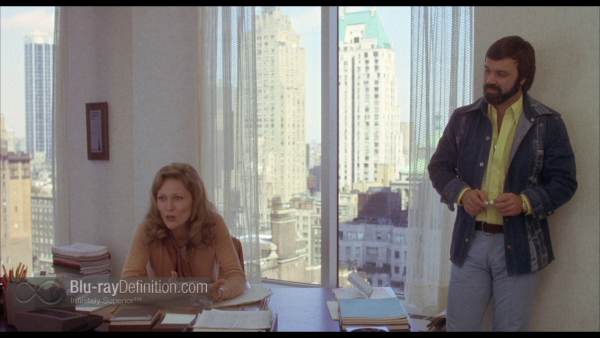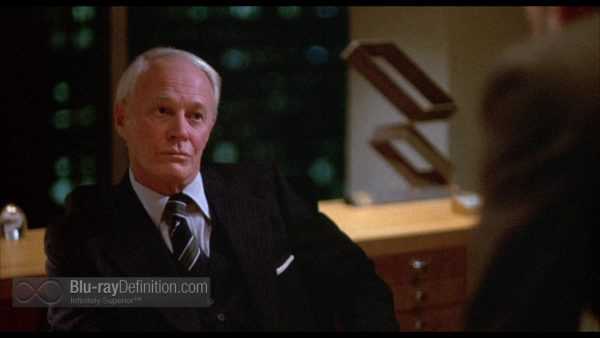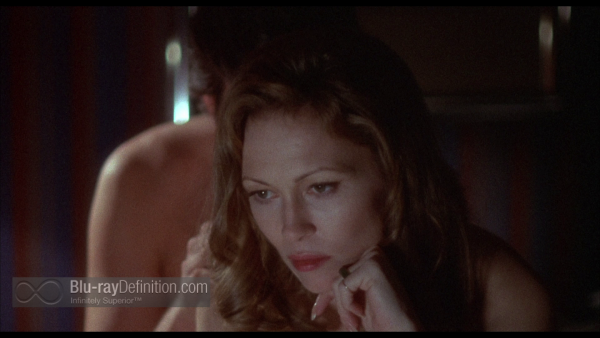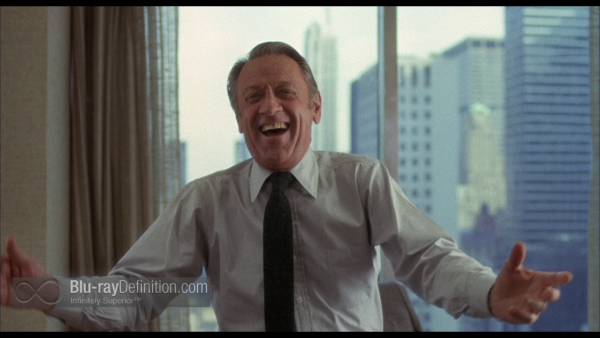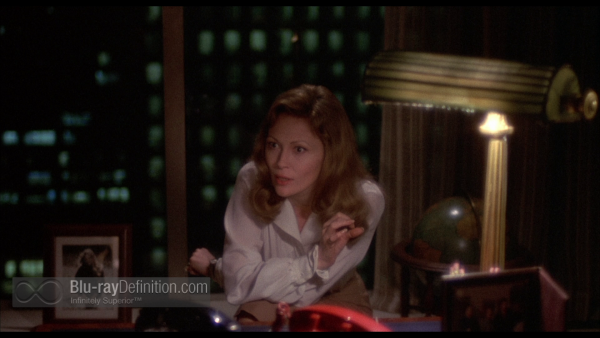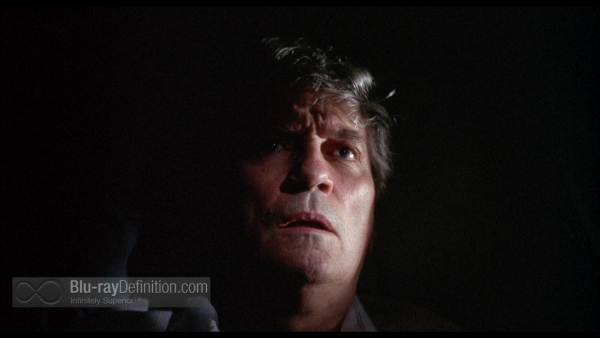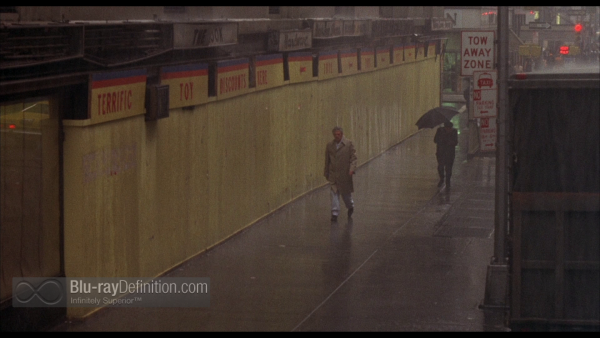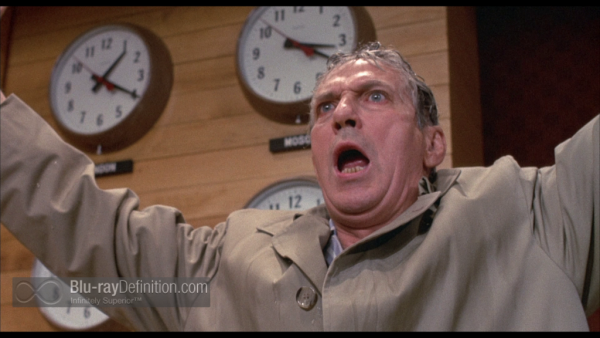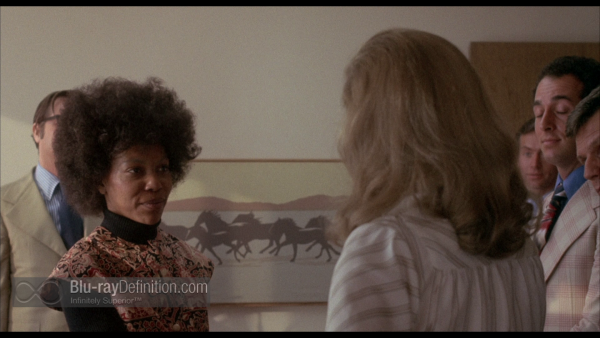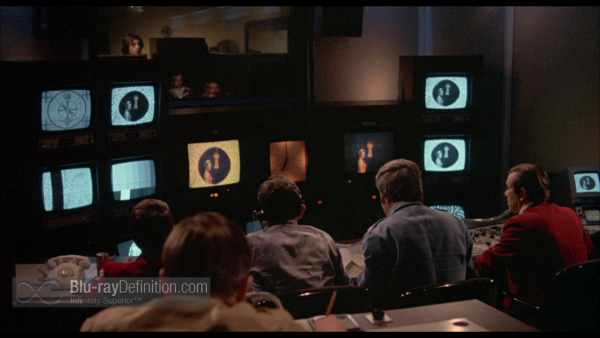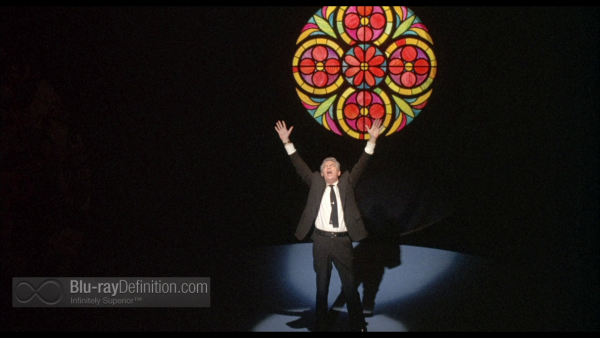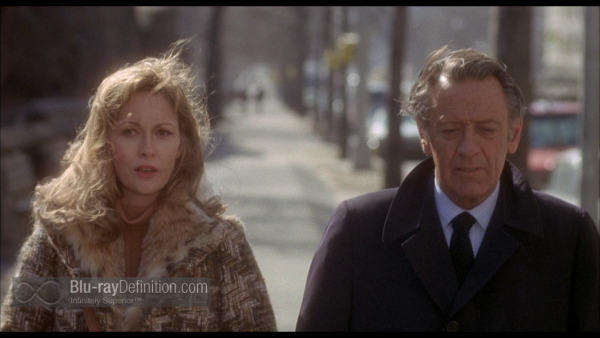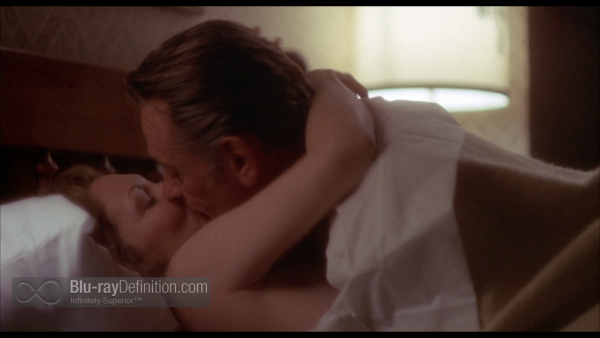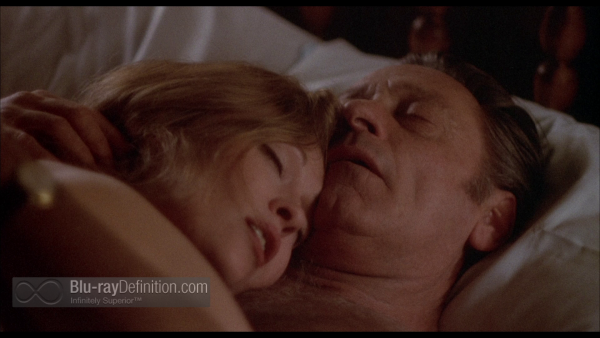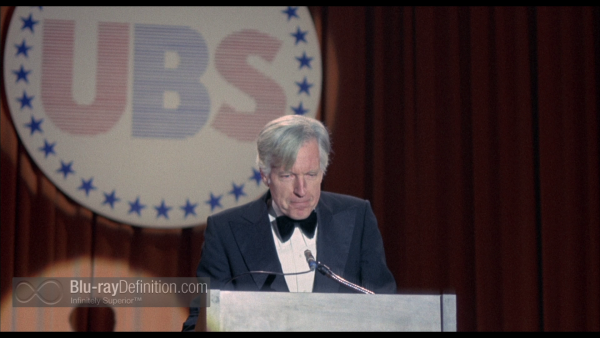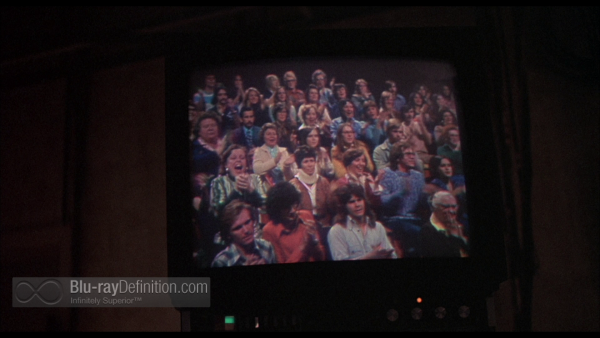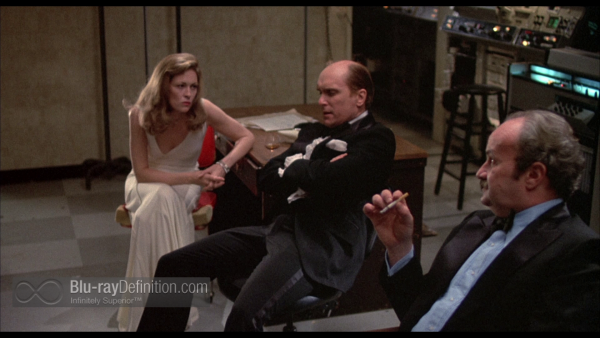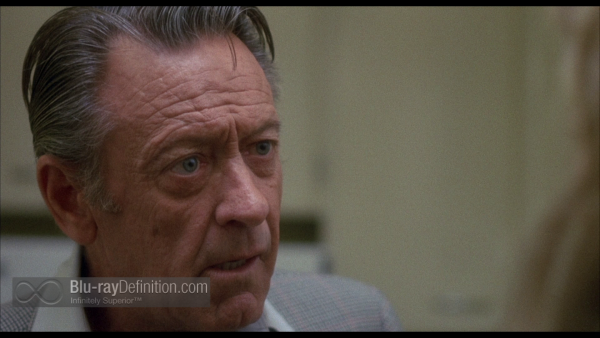– –
The Film
[Rating:5/5]
In 1976, director Sidney Lumet (Serpico; The Offence) and writer Paddy Chayefsky prognosticated the coming wave of trash television with this perspicacious satire about network television.
Network follows the story of aging network news anchorman Howard Beale (Peter Finch), who, after being informed by his longtime friend, network news executive Max Schumacher (William Holden), that the United Broadcasting System (UBS) wants him out because he’s too old, decides to go on air the next night and announce he’s going to kill himself on air during his final broadcast. Of course, this doesn’t go over well with the higher ups, especially the representative, Frank Hackett (Robert Duvall), from the international conglomerate that has just taken over the network, who orders Beale off the air immediately. But overnight ratings prove a boon; people seem to respond to Beale’s announcement, and he’s allowed back on the air. Naturally, he doesn’t commit suicide, but he does begin a rant about all the problems in the world, urging viewers to rush to their windows, and yell “I’m mad as hell, and I’m not going to take it anymore!” It’s one of the film’s most famous, rousing, and memorable lines. When ambitious programming executive Diana Christensen (Faye Dunaway) eyes Beale’s rants on TV, she embarks on a campaign to convince the network, namely Hackett, to allow her to bring the nightly news program under her control and the control of the entertainment arm. She thus begins to turn the news show into a trashy spectacle, one that even includes a psychic, and Howard Beale center stage under a spotlight ranting on the world’s problems, billed as “”The Mad Prophet of the Airwaves.”
Network came along at just the right time in American history for its kind of story. It landed in a country weary from Vietnam, the Watergate scandal, recession, civil rights battles, and rising crime levels. “I’m mad as hell, and I’m not going to take it anymore!” might as well have been a mantra for an entire generation of the disillusioned cynical after the let down of the promise of the 1960s counterculture and even the newfound structure meant to come about by the conservative Nixon administration. Ironically, the film becomes more relevant by the decade, as television becomes increasingly garish, and news broadcasts more like entertainment. Howard Beale has nothing on the political pundits, reality shows, and 10-second soundbites that make up what passes for news today.
Video Quality
[Rating:3.5/5]
Network comes to Blu-ray in an AVC/MPEG-4 1080p encodement from Arrow that is heavy with grain and does suffer from film softness. That said, the image looks natural, but could be better for a catalogue release. Black levels give in to crush in areas and also bring higher grain levels in the darker scenes. Flesh tones sometimes push a tad too much near red and sometimes look a little pale. Detail also wavers a bit, looking mostly sharp, but then showing some midrange and background shots that look very soft.
Audio Quality
[Rating:3.5/5]
The original monaural mix is supplied in LPCM 1.0 (48kHz/24-bit). There isn’t much to it given the limited range and channels, but the dialogue is clear enough, albeit a little thin, and sound is just a bit compressed.
Supplemental Materials
[Rating:4/5]
- The Directors: Sidney Lumet (1.33:1; SD; 00:59:38) – A 1999 episode of The Directors devoted to the director, containing interview with Jack Lemmon, Rod Steiger, Christopher Walken and others.
- Tune in Next Tuesday (1.85:1; 1080p/24; 00:47:06) – A visual essay by Dave Itzkoff, the author of Mad as Hell: The Making of Network and the Fateful Vision of the Angriest Man in Movies.
- Theatrical Trailer
- Reversible sleeve featuring original and newly commissioned artwork by Chris Walker
- Collector’s booklet featuring new writing on the film by Mike Sutton and an American Cinematographer article by director of photography Owen Roizman, illustrated with original stills and artwork
The Definitive Word
Overall:
[Rating:4/5]
The continuing blurring of the lines between news and entertainment, the kookie conspiracy theory websites, and fake reality shows that saturate our airwaves and broadband connections today ensure the relevance of Network well into the future. The film garnered ten Oscar nominations including Best Picture and took home four, including Best Screenplay for Paddy Chayefsky. It also won three acting awards, including Best Actress for Dunaway; Best Supporting Actress for Beatrice Straight (which was the shortest Oscar-winning performance at that point before Judi Dench’s turn in Shakespeare in Love); and a posthumous Best Actor award for Peter Finch.
Additional Screen Captures
[amazon-product region=”uk” tracking_id=”bluraydefinit-21″]B00R7V3E30[/amazon-product]
[amazon-product region=”uk” tracking_id=”bluraydefinit-21″]B00R7V3E30[/amazon-product]


